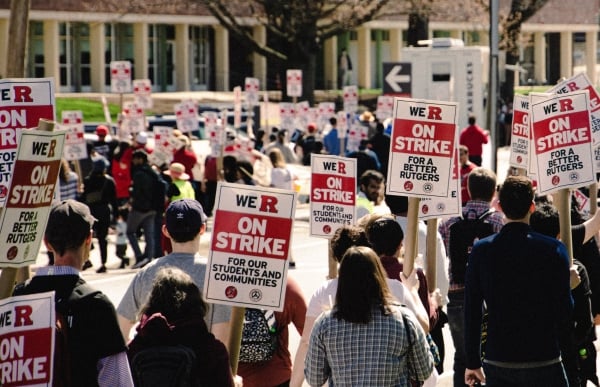Higher education workers across the country are increasingly seeking to coordinate their efforts on a national level to address common challenges and advocate for their rights. As the landscape of higher education continues to evolve, with increasing financial pressures, shifting priorities, and the rise of contingent faculty positions, workers are looking to come together to ensure their voices are heard and their interests are represented.
One key aspect of this coordination is the push for unionization among higher ed workers. Unions can provide workers with a collective voice in negotiations with their employers, as well as a platform for organizing and advocating for better working conditions, fair wages, and job security. The increase in unionization efforts among higher ed workers reflects a growing recognition of the need for solidarity and collective action in the face of the challenges facing the industry.
In addition to unionization, higher ed workers are also seeking to coordinate their efforts through national organizations and coalitions. These groups provide a forum for workers from different institutions and roles to come together, share information and resources, and strategize on how to address common issues. By coordinating nationally, workers can amplify their voices and leverage their collective power to push for change on a broader scale.
One example of this national coordination is the recent formation of the National Higher Education Workers Alliance (NHEWA). NHEWA brings together workers from various higher ed institutions across the country to collaborate on organizing campaigns, advocacy efforts, and policy initiatives. By uniting workers from different sectors of higher education, NHEWA aims to build a stronger, more cohesive movement that can push for reforms and improvements across the industry.
The push for national coordination among higher ed workers comes at a critical time, as the industry faces significant challenges and uncertainties. The COVID-19 pandemic has exacerbated existing issues such as job insecurity, inadequate wages, and lack of benefits, prompting workers to take collective action to ensure their needs are met. By coming together on a national level, higher ed workers can better advocate for their rights and interests, and work towards creating a more equitable and sustainable future for all workers in the industry.
In conclusion, the increasing efforts of higher ed workers to coordinate nationally reflect a growing recognition of the need for collective action in the face of common challenges. By unionizing, joining national organizations, and forming alliances, workers can amplify their voices and push for reforms that benefit the entire industry. As higher ed workers continue to organize and advocate for their rights, the movement for national coordination is likely to grow and play an increasingly important role in shaping the future of higher education.


